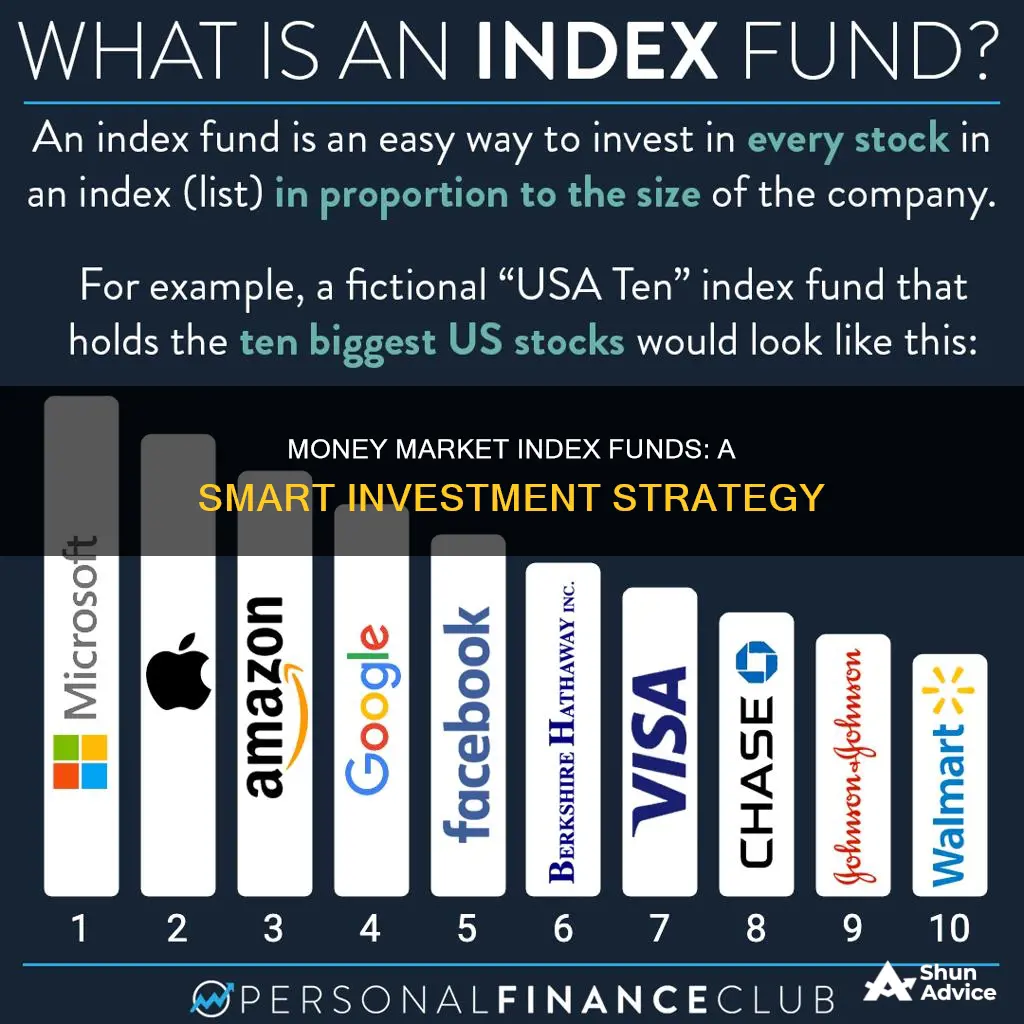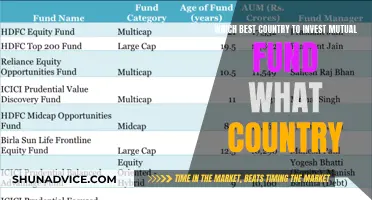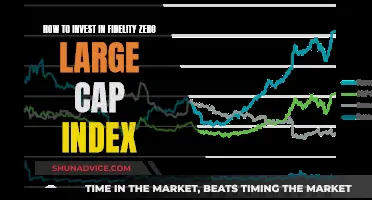
Money market funds are an alternative to savings accounts and a safe place to hold money you don't need immediately, such as an emergency fund. They are an investment product, so they are not protected by deposit insurance, but they can be a good option when interest rates are high.
Money market funds are a type of mutual fund that invests in short-term, low-risk debt securities, such as US Treasury bills, municipal bonds, commercial paper and other cash equivalents. They are highly liquid and usually have a stable net asset value of $1 per share.
There are three main types of money market funds: government, municipal and prime money funds. Government money funds are considered the safest option as they invest in cash, US government securities and fully collateralised repurchase agreements. Municipal money market funds invest in short-term debt issued by state and local governments, and they are a good option for investors in a higher tax bracket. Prime money funds invest in short-term, high-quality debt securities from a range of corporations and financial institutions, and they typically offer higher yields than government money funds.
When choosing a money market fund, it's important to consider the type of fund, the expense ratio, the minimum investment requirements and the average yield.
| Characteristics | Values |
|---|---|
| Type of fund | Money market mutual fund |
| Investment type | Short-term, low-risk debt securities |
| Examples of debt securities | U.S. Treasury bills, municipal bonds, commercial paper, cash equivalents |
| Types of money market mutual funds | Government, municipal, prime |
| Risk level | Low |
| Returns | Lower than other mutual funds or riskier investments |
| Liquidity | High |
| Regulation | Regulated by the U.S. Securities and Exchange Commission (SEC) |
| Insurance | Not insured by the Federal Deposit Insurance Corporation (FDIC) |
What You'll Learn

What is a money market fund?
A money market fund is a type of mutual fund that invests in short-term, high-quality, and low-risk debt securities. These funds are designed to provide investors with high liquidity, capital stability, and income, generally offering higher yields than other cash products like savings accounts. Money market funds invest in a range of securities, including Treasury bills, municipal debt, corporate bonds, and debt-based instruments such as bankers' acceptances, certificates of deposit, commercial paper, repurchase agreements, and U.S. Treasuries.
Money market funds aim to maintain a net asset value (NAV) of $1 per share, and while they don't offer much capital appreciation, they generate modest income through interest. They are considered low-risk investments but are sensitive to interest rate fluctuations.
Money market funds are not the same as money market accounts, which are a type of savings account offered by financial institutions and insured by the Federal Deposit Insurance Corporation (FDIC). In contrast, money market funds are investment products without FDIC insurance, and their principal value can fluctuate.
Maximizing Investment Returns: Strategies for Utility-Focused Investors
You may want to see also

How do money market funds work?
Money market funds are a type of mutual fund that invests in low-risk, short-term debt securities, such as Treasury bills, municipal debt, or corporate bonds. They are designed to offer a safe, stable investment option for money that may be needed in the short term. Money market funds are different from money market accounts, which are typically offered by banks and credit unions and insured by the FDIC. Money market funds, on the other hand, are an investment product that requires a brokerage account to get started. They can be used to hold money for upcoming purchases, emergency funds, or settlement funds in brokerage accounts.
Money market funds generally pay a higher yield than traditional bank savings accounts, and it is easy to withdraw money from them without the fees or penalties that may be associated with certificates of deposit (CDs). They are also used as settlement funds—the account holding the money used to buy and sell—in brokerage accounts. Money market funds invest in low-risk assets like Treasury bonds, CDs, or short-term, high-quality corporate bonds with maturities of less than a year.
While all money market funds have the same share price, their yields vary. The 7-day yield is a calculation used to measure a fund’s annualised yield and can be helpful for comparing different money market funds. Money market funds typically pay distributions monthly.
There are two main types of money market funds: taxable (or prime) funds and tax-exempt funds. Taxable money market funds usually offer higher yields, but any income is subject to taxes. Tax-exempt funds, also known as "munis" or "municipal" funds, usually have lower yields but their earnings are federally tax-free. Some tax-exempt funds invest only in bonds issued by a specific state, making them both federal and state tax-free for residents of that state.
Government money market funds are another type of fund that invests only in assets backed by the federal government, such as Treasury bonds. They are considered the safest and most liquid type of money market fund. Retail funds, on the other hand, can invest in other types of assets, such as municipal bonds or short-term, high-quality corporate bonds. They are also subject to SEC rules about liquidity fees and gates during times of extreme market stress.
Money market funds are meant to be safe, liquid, and higher-yielding than traditional bank savings accounts. However, it is important to note that they are not insured by the FDIC and may be subject to penalties or restrictions on withdrawals. Overall, money market funds can be a sound alternative to traditional bank accounts or CDs, offering competitive yields, easy access to funds, and low risk.
Equity Income Funds: Smart Investment for Steady Returns
You may want to see also

How to invest in money market funds
Money market funds are a type of mutual fund that invests in short-term, low-risk debt securities, such as US Treasury bills, municipal bonds, and commercial paper. They are a good alternative to savings accounts, especially when interest rates are high. Here is a step-by-step guide on how to invest in money market funds:
Open a brokerage account
The first step is to open a brokerage account with an online trading platform or an investment app. Most brokers will ask for personal information, such as your social security number and annual income.
Determine how much to invest
Many money market funds have initial investment requirements, so it's important to know how much you have available to invest. You should also consider your short-term investment goals, risk tolerance, and overall financial circumstances.
Choose a money market fund
Decide what type of money market fund you want to invest in and compare features like the expense ratio, minimum investment requirements, and interest rate.
Keep track of your investment
Monitor your investment regularly and make sure it keeps up with your goals. Remember that money market funds are best suited for short-term investment strategies.
Factors to consider when choosing a money market fund:
- Type of fund: Government, municipal, or prime money funds have different risk levels.
- Expense ratio and other fees: Look for funds with lower expense ratios and minimal trading fees or mutual fund commissions.
- Minimum investment requirements: These can range from no minimum to upwards of $10,000, depending on the type of fund.
- SIPC protection: Ensure that the investment company managing the fund is a member of the Securities Investor Protection Corporation (SIPC).
Get Funding for Investment Property Despite Bad Credit
You may want to see also

How to choose a money market fund
Money market funds are offered by a variety of financial institutions, including banks, brokerage firms, and mutual fund companies. When choosing a money market fund, consider the following factors:
- Yield: Compare the fund's yield to others in the industry to ensure you're getting a good return on your investment.
- Expense ratio: Funds charge an expense ratio, which is deducted from your investment returns. A lower expense ratio is preferable as it results in higher returns for investors.
- Type of fund: Money market funds are typically divided into three categories: government, prime, and municipal. Government funds invest in low-risk, short-term securities issued by governments. Prime funds invest in a wider range of securities, including those issued by governments, corporations, and financial institutions. Municipal funds invest primarily in tax-exempt securities.
- Other fees: Be mindful of any additional fees charged by brokers or fund families when buying and selling money market funds.
- Risk and liquidity: Money market funds are considered low-risk investments, but they are not insured by the FDIC. While they aim to maintain a stable net asset value, there have been instances where funds have lost value during financial crises.
Advisor Fund Investment: Long-Term Strategy for Success
You may want to see also

Are money market funds taxable?
Money market funds are a type of mutual fund that invests in low-risk, short-term debt securities, such as Treasury bills, municipal debt, or corporate bonds. They are designed to offer a safe, stable investment option for money that may be needed in the short term. Money market funds are not insured by the FDIC; however, they may be eligible for $500,000 coverage under SIPC when held in a brokerage account.
Money market funds are divided into two categories: taxable and tax-exempt. If you’re buying a taxable fund, any returns from the fund are generally subject to regular state and federal taxes. Taxable funds mainly invest in U.S. Treasury securities, government agency securities, repurchase agreements, CDs, commercial paper, and bankers’ acceptances.
On the other hand, tax-exempt funds do not provide as many options and have a lower yield. These funds invest in short-term debt obligations issued by federally tax-exempt entities (municipal securities), and their earnings are federally tax-free. In some cases, you can purchase tax-free funds that are exempt from both state and local taxes.
Money market funds are meant to be safe, liquid, and higher-yielding than savings at traditional banks. However, it's important to note that they are not FDIC-insured, and there may be other fees and restrictions associated with them.
IRA Investments: Understanding Fund Unavailability
You may want to see also







